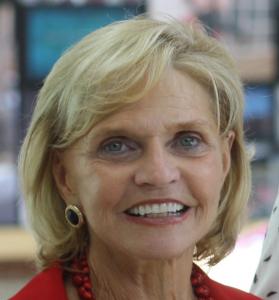Beverly Perdue

1997 North Carolina Fisheries Reform Act
The Fisheries Reform Act is the most significant fisheries legislation in NC history.
In 1994, the North Carolina General Assembly approved a moratorium on the sale of new commercial fishing licenses and established the 19-member Fisheries Moratorium Steering Committee to oversee a study of the state's entire coastal fisheries management process and to recommend changes to improve that process. The Moratorium Steering Committee included legislators, fisheries managers, scientists, commercial fishermen, and recreational fishermen. The committee commissioned six research studies and reviewed a broad range of issues, including fishing licenses, fishing gear, habitat protection, agency organization, and law enforcement. The committee issued a draft report in the late summer of 1996, held 19 public meetings across the state, and adopted a final report in October 1996 that formed the basis for the Fisheries Reform Act. Governor James B. Hunt signed the Act into law on August 14, 1997.
The 1997 North Carolina Fisheries Reform Act: An Oral History Perspective was made possible by the North Carolina Sea Grant Community Collaborative Research Grant Program.
Mary Williford
Beverly Perdue is a prominent figure in North Carolina politics, having served as the state's Governor. She has been actively involved in various legislative initiatives, particularly those related to fisheries and environmental issues. Perdue's political career began with her interest in the Democratic Party and her first experiences with politicians in Raleigh. Throughout her career, she has been involved in numerous coastal-related legislations, including the Fisheries Reform Act, which she describes as 'consensus legislation'. She has also expressed concerns about coastal overdevelopment, climate change, water rights, and access to drinking water. Perdue has shown empathy for commercial fishing families and has advocated for the importance of citizen advocacy in the legislative process. She has also been instrumental in the development of the North Carolina History Center in New Bern.
Scope and Content Note
This interview with Beverly Perdue, conducted by Barbara Garrity-Blake and Mary Williford on September 29, 2016, provides an in-depth look into Perdue's political career and her involvement in various legislative initiatives in North Carolina. The interview covers a range of topics, including Perdue's initial involvement in public office, her interest in the Democratic Party, and her experiences with politicians in Raleigh. The interview also delves into Perdue's work on the Fisheries Reform Act, her empathy for commercial fishing families, and her suggestions for getting fisheries issues back on the government's radar. Perdue discusses the role of citizen advocacy in the legislative process and the significant roles that women played in advocating for the industry during this period. Perdue also shares her concerns about coastal overdevelopment, climate change, water rights, and access to drinking water. She discusses her involvement with other coastal-related legislation during her career and her advice to current legislators on re-opening the issue of fisheries management in the current political climate. The interview concludes with Perdue sharing a personal anecdote from her campaign for Lieutenant Governor and the impact of her role as a female Governor on young girls.
Please Note: The oral histories in this collection are protected by copyright and have been created for educational, research and personal use as described by the Fair Use Doctrine in the U.S. Copyright law. Please reach out Voices@noaa.gov to let us know how these interviews are being used in your research, project, exhibit, etc. The Voices staff can help provide other useful resources related to your inquiry.
The NOAA mission is to understand and predict changes in climate, weather, oceans, and coasts, to share that knowledge and information with others, and to conserve and manage coastal and marine ecosystems and resources. The Voices Oral History Archives offers public access to a wide range of accounts, including historical materials that are products of their particular times, and may contain offensive language or negative stereotypes.
Voices Oral History Archives does not verify the accuracy of materials submitted to us. The opinions expressed in the interviews are those of the interviewee only. The interviews here have been made available to the public only after the interviewer has confirmed that they have obtained consent.
